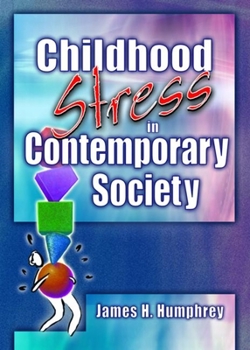Childhood Stress in Contemporary Society
Don't let your own reaction to stress negatively affect the children in your care!
With new evidence indicating that undesirable stress is likely to have its roots in childhood, Childhood Stress in Contemporary Society is a much-needed resource for anyone who works with children. An authority in the field of stress education, Dr. James Humphrey offers an easy-to-read text on what stress is, how it affects children as opposed to adults, and how to take back control when stress becomes overwhelming. Whether a parent, caretaker, counselor, or teacher, this book will provide you with a better understanding of stress and several methods for helping children cope on a daily basis. Childhood Stress in Contemporary Society provides readers with an extensive exploration of the definition of stress, from basic terminology to the causes and effects of stress in the daily lives of children and adults. This book will teach you how to better deal with stress in your own life and how to share that knowledge with children. Dr. Humphrey walks you step-by-step through a variety of techniques, exercises, and games that improve a child's self-image and the confidence necessary to contend with stressful situations. This book will help you: spot irregular behavior in children usually associated with poor stress management help children understand and respond more appropriately to stressors work with children with special needs who have additional stress due to their afflictions alleviate or reduce stressors at home and in school provide the appropriate level of physical activity to children to decrease tension utilize relaxation techniques, such as meditation and biofeedback, to alleviate stressRich with interviews, surveys, and case studies focusing on children and caretakers, Childhood Stress in Contemporary Society is an important manual for helping children in today's hectic culture. Recent discoveries indicate that children who associate with adults under stress are very likely to become stress-ridden themselves; children supervised by adults who do not cope well with stress can adopt this same inability to cope. Therefore, this book is vital for those adults who are involved with the well-being of children.
Format:Paperback
Language:English
ISBN:0789022664
ISBN13:9780789022660
Release Date:September 2004
Publisher:Routledge
Length:194 Pages
Weight:0.65 lbs.
Dimensions:0.5" x 6.3" x 8.5"
Customer Reviews
0 rating





